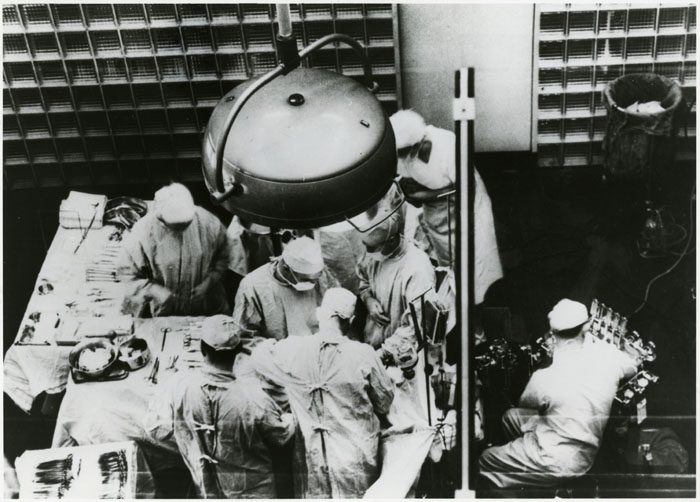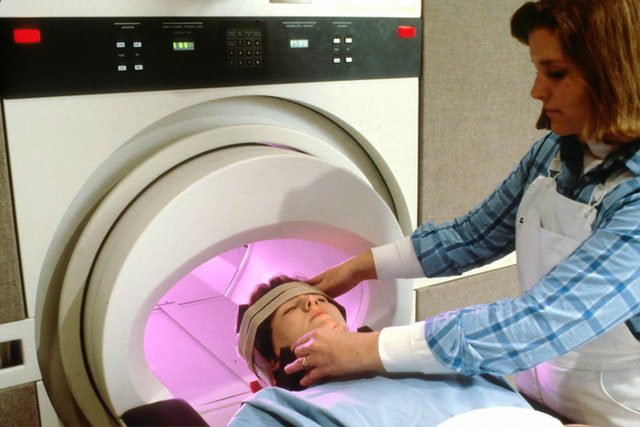

Although scientists have experimented with organ transplants since the 18th century, it wasn’t until 1954 that the first successful organ transplant took place.
A kidney transplant was performed between identical twins where one twin was the kidney donor. Soon afterward, more successful transplants took place, such as the first liver transplant in 1967 and the first heart transplant in 1968.
Today, there are thousands of people waiting for a transplant every day in the United States alone. Still, only a few surgical techniques carry as much complexity and moral considerations as organ transplantation.

Antibiotics are used to fight off bacterial infections and treat various transmissible diseases all across the globe. But did you know that they were discovered accidentally by a scientist named Alexander Fleming? According to the Microbiology Society, in 1928, Fleming found a fungus (now commonly known as Penicillin) growing in a petri dish of Staphylococcus bacteria but noticed that wherever the fungus was growing, the bacteria was not. Now, Penicillin and other forms of antibiotics are being used to combat various bacterial illnesses such as strep throat, pneumonia, whooping cough, UTI, and many more. Before the invention of antibiotics, such diseases often led to many fatalities.

Heart disease is the number one killer in the entire world. However, even with such a scary statistic, multiple advancements have been made to help extend and improve the quality of life of people with heart disease.
Cardiac defibrillation was discovered in 1947 when a 14-year-old boy’s heart stopped during surgery. Dr. Claude Beck ordered his research unit to deliver the shock using two metal tablespoons attached to wooden handles. This discovery has saved countless lives who have undergone cardiac arrest.
In 1953, the heart-lung bypass, which Dr. John Heysham Gibbon invented, was successfully used for the first time to support a patient’s heart and lung function during open-heart surgery. This breakthrough also paved the way for coronary artery bypass grafting in 1967, which is now being done every day in hospitals around the globe to help people with coronary heart disease.
In 1982, Dr. William DeVries successfully implanted the first artificial heart, Jarvik 7 (invented by Dr. Robert Jarvik). Today, artificial hearts are being used for patients on the waiting list for a real heart transplant.

Magnetic resonance imaging (MRI) is a technique used to capture organ images inside the body. The MRI came to life in the 1970s, and it wasn’t until 1977 that Dr. Raymond Damadian developed the first full-body MRI.
Before the invention of the MRI machine and other radiologic imaging technologies, doctors were relegated to only looking for external signs of injury. But now, with MRIs, doctors can diagnose a patient in a non-invasive manner. Cysts, tumors, internal bleeding, swelling, and many other abnormalities are easily detected, which has helped doctors treat their patients accordingly and help them onto a path of recovery from grave illnesses like cancer.

Although birth control pills don’t treat any disease, their discovery still had a profound social impact and has improved the lives of many women. In the 1950s, the Planned Parenthood Federation of America, Gregory Pincus, and John Rock created the first birth control pill. However, it wasn’t until the late 1960s that the FDA approved this form of contraception and made it widely available to the public.
The Pill was considered the first-ever lifestyle drug as it has revolutionized women’s lives. The use of birth control pills allowed women to have control over their fertility, and because of this, advance in economic opportunities and feel empowered.
There are still many medical breakthroughs over the past century that we weren’t able to mention, and there will continue to be even more over the following decades. Medicine and technology are ever-evolving, and with the rise of Artificial Intelligence (AI) – who’s to say how far the new wave of medical discoveries will go!





0 Comments